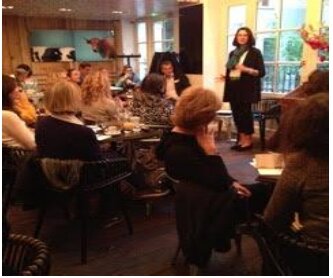Intervention de Lynne à l'ICF Paris International Café Coach - 26 octobre 2016

ICF Paris International Café Coach with Lynne Burney
POWER Using it or Abusing it in the role of coach
 Lynne Burney speaking to the ICF Paris International group We’d gathered together, the international coaching community in Paris, some more experienced than others, in our usual café setting to listen to Lynne Burney an experienced MCC, proprietor of the LKB coaching school and founding member of SF Coach talk to us about power.As we were to learn over the next two hours, “Power” was already present as we took our seats, ordered our coffees and chatted to our colleagues. We weren’t talking about it yet, but it was there. On reflection, maybe we’re so used to it, that we just don’t notice it any more, or maybe we prefer to ignore it – at least in polite company. As we were to discover it’s a constant companion - always present, but not always acknowledged.Lynne opened up the session by sharing an experience where she felt she had misused her power – she’d bought into a client’s sense of urgency by trying to take her too far, too fast. The power invested in her role as coach had allowed her to ask questions that were too far reaching for her client. She felt that she hadn’t taken the time to get permission from her client nor to form a pact with her.As Lynne spoke, the balance of power started to shift in the room, as this experience brought us up close to several of the places where power resides. It comes hand in hand with role and with rank. Lynne was our speaker, she’d come to share her knowledge and experience. Even if only on a subtle level, she was the teacher and we were the students – we each had our roles. And then there was her rank. Most of the participants were less experienced than Lynne, and only a handful of those present shared her MCC status. Her rank within a professional organisation had imbued her with a certain power. We hadn’t discussed this, or decided it, it just was. Yet suddenly Lynne had taken that unacknowledged power out of the shadows and had placed it in the middle of the room for all to see. It was a demonstration that was subtle and impactful at the same time (the MCC was back!).where were we to go from here?We were still coming to terms with our own awareness on how power had been there all along, when Lynne asked us to look at our own roles, whether they be in a work setting, a family or an association. What rank did we have in these groups? What did a given role enable us to do? How was it perceived by others?She also asked us to reflect on our childhood, our origins, the colour of our skin, our gender, our education and several other criteria and to ask ourselves what privileges others would perceive us to have as a result of those things.We discussed these questions in pairs and Lynne asked us to become aware of how much Power is a part of all relationships. With my partner, we felt that power could be compared to the lemniscate, the flowing perpetuum movement like the infinity symbol. It is constantly moving and shifting within the relationship. Lynne’s intent here was indeed to get Power to step out of the shadow, to acknowledge that we’re not all born equal, that power exists. Any role that we have comes invested with energy. The role has a rank and it has privileges that are either experienced or perceived.As the group came back together Lynne asked us how we felt when talking out loud about our perceived power. From my personal point of view, it felt uncomfortable. The subject provoked a lively discussion and several key ideas emerged from the group:
Lynne Burney speaking to the ICF Paris International group We’d gathered together, the international coaching community in Paris, some more experienced than others, in our usual café setting to listen to Lynne Burney an experienced MCC, proprietor of the LKB coaching school and founding member of SF Coach talk to us about power.As we were to learn over the next two hours, “Power” was already present as we took our seats, ordered our coffees and chatted to our colleagues. We weren’t talking about it yet, but it was there. On reflection, maybe we’re so used to it, that we just don’t notice it any more, or maybe we prefer to ignore it – at least in polite company. As we were to discover it’s a constant companion - always present, but not always acknowledged.Lynne opened up the session by sharing an experience where she felt she had misused her power – she’d bought into a client’s sense of urgency by trying to take her too far, too fast. The power invested in her role as coach had allowed her to ask questions that were too far reaching for her client. She felt that she hadn’t taken the time to get permission from her client nor to form a pact with her.As Lynne spoke, the balance of power started to shift in the room, as this experience brought us up close to several of the places where power resides. It comes hand in hand with role and with rank. Lynne was our speaker, she’d come to share her knowledge and experience. Even if only on a subtle level, she was the teacher and we were the students – we each had our roles. And then there was her rank. Most of the participants were less experienced than Lynne, and only a handful of those present shared her MCC status. Her rank within a professional organisation had imbued her with a certain power. We hadn’t discussed this, or decided it, it just was. Yet suddenly Lynne had taken that unacknowledged power out of the shadows and had placed it in the middle of the room for all to see. It was a demonstration that was subtle and impactful at the same time (the MCC was back!).where were we to go from here?We were still coming to terms with our own awareness on how power had been there all along, when Lynne asked us to look at our own roles, whether they be in a work setting, a family or an association. What rank did we have in these groups? What did a given role enable us to do? How was it perceived by others?She also asked us to reflect on our childhood, our origins, the colour of our skin, our gender, our education and several other criteria and to ask ourselves what privileges others would perceive us to have as a result of those things.We discussed these questions in pairs and Lynne asked us to become aware of how much Power is a part of all relationships. With my partner, we felt that power could be compared to the lemniscate, the flowing perpetuum movement like the infinity symbol. It is constantly moving and shifting within the relationship. Lynne’s intent here was indeed to get Power to step out of the shadow, to acknowledge that we’re not all born equal, that power exists. Any role that we have comes invested with energy. The role has a rank and it has privileges that are either experienced or perceived.As the group came back together Lynne asked us how we felt when talking out loud about our perceived power. From my personal point of view, it felt uncomfortable. The subject provoked a lively discussion and several key ideas emerged from the group:
- The necessity to acknowledge power and to put in on the table with our client, as Lynne had done with us.
- The importance of power in the coaching process, as opposed to the outcome
- Power being used to hold the container or the frame of the coaching process
- Naming power, its role and where it is most useful
- Using the coaching structure to allow clients to grow their own power muscles
- Distinguishing the role (and the power that comes with it) from the person occupying it
- Awareness that people relate to a role, and not to the person holding it
- The link between vulnerability and power, being in the heart space helps keep power in check
- Helping others to acknowledge their power, particularly when it’s being denied or is unconscious
- Asking the client what role they have given us and what that implies for them
Lynne finished up the session with a downloading exercise to help us integrate and anchor our experiences. She asked us to write down six times the answer to the same question; What’s the first thing you know about your power as a coach, about your privilege and your rank?I believe that for those present, power will have a hard time hiding in the shadows from now on. We’ll be calling him out and making him share his gifts. We’ll be owning our power and helping our clients to own theirs.Many thanks to Lynne Burney for her generosity in sharing. During the event Lynne referred directly to the work of Arnie Mindell and the Process Work Institute. This is developed in France by Maurice Brasher. She also referred to Julie Diamond’s book “Power – A User’s Guide”. Article written by Jo Leymarie 27th October 2016 ICF Paris International. is an English-language initiative by ICF Chapter Paris Ile de France. The quarterly English-language breakfast meetings aim at creating an opportunity for the international coaching community to get together in Paris. Internationally renowned and diverse guest speakers are invited to share about trends, best practices, methodologies, tools with the coaching community in France. The events are open to all nationalities, to both ICF members and non-members. We welcome your contributions to make our events successful. Please contact Hellen Hettinga (hellen.hettinga@coachfederation.fr) in charge of ICF Paris International within our chapter to share your suggestions, contacts and proposals.
